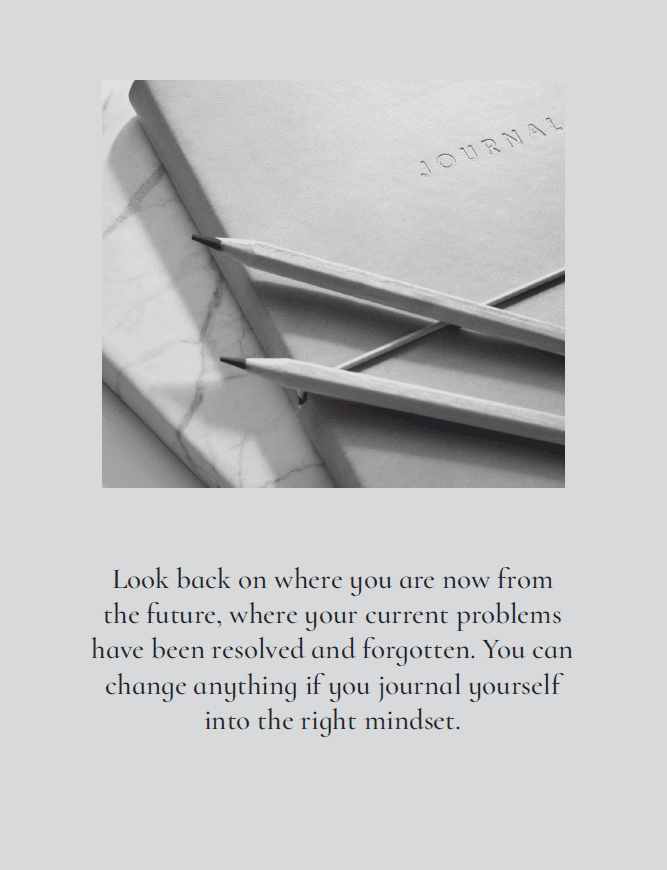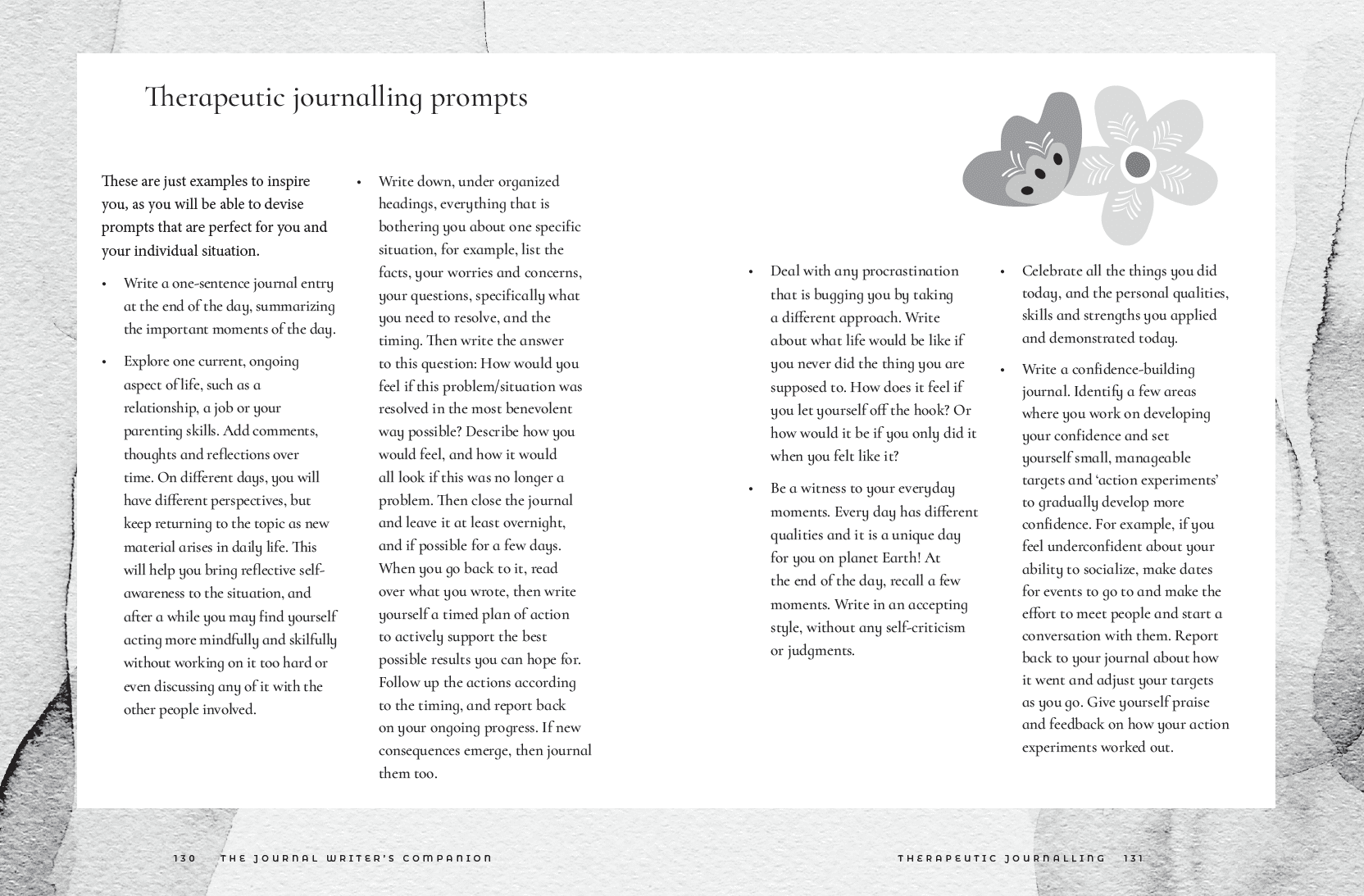‘ DEAR DIARY ’: THE BENEFITS OF A
THERAPEUTIC STYLE OF JOURNALLING
There are many benefits from keeping a journal that apply to everyone, not just to those of us with identifiable difficulties such as low confidence or depression.
Writing about your day, your concerns and your feelings can help you relax, help you solve problems more effectively, and park them. If you find yourself waking up in the night, keep a journal by your bedside and write down whatever is on your mind.
Writing down your problems and concerns helps you to express your feelings and organize your thoughts better and this can benefit your physical health, as well as your memory recall in later life.

PROCESSING THE PAST
Journalling creates an excellent means for processing your “baggage,” and an important challenge in working through anything that makes you feel negative or miserable about yourself.
Mine your experiences for what you want to keep and what you no longer need. It can be empowering to see the connection between past experiences and how they informed your current reality, and the choices you continue to make that are still influenced by the past.
With any personal issue that needs resolution, it’s helpful to have a sense of where it started, how this informed where you are, and where you truly want to go next.
WRITING IN THE AFTER MATH
OF TRAUMA AND ABUSE
If you have experienced trauma, abuse, traumatic displacement or loss, or traumatic stress disorder, it is important to find ways to process these experiences so that you can still enjoy life. However, just writing a narrative account of what happened, or just telling someone what happened, is often not therapeutic or helpful in itself. In fact, it can re-traumatize you, as part of your brain cannot tell the difference between the past and the present and you can re-experience the trauma happening all over again every time you repeat it. So, telling the story of what happened is not, by itself, therapeutic and it may even reinforce the vortex of the trauma and keep you cycling around it. Thus, your writing needs to have clear intentions and a clear structure.
One of the ways in which your experiences may have been very difficult to process and recover from is that perhaps you felt disempowered, helpless or victimized. Perhaps you dissociated, froze or lost some memories. You can use the writing process to help you overcome the syndrome of ‘learned helplessness’ that sometimes happens when you have experienced situations that were beyond your control. This can happen to anyone, but particularly when you lose awareness during or after the events. It means that combinations of ordinary, everyday events can sometimes trigger you to re-enact aspects of what happened, or you become fearful or have a panic attack. Writing your story in a more active and empowered way can help you feel more fully engaged in life again. This means you take charge of the story and write it from your own viewpoint, as the author of your own experience. As the author, you are in charge of the ending, which means you are free to choose the attitude and approach you now want to take, both towards yourself and the people who were involved in this.
The bad guys have only won if you do not recover.
Perhaps you have valuable learning that you would like to share with others facing similar circumstances? Perhaps you would like to write down how you now feel towards people who hurt you? So, be sure to include your comments and thoughts in your writing, and do not just tell what happened. Give your work a title, subheadings, structure and direction, with a beginning, a middle and an end. In your conclusion, gather together the important things you have discovered and learned and how you would like to take these forward in your next steps in life. Perhaps you can make a plan so this no longer affects you in the same way.
Establish a sense of closure and moving on.

JOURNAL WRITING AS AN ADJUNCT
TO THERAPY OR COUNSELLING
While you are attending therapy or counselling, you can get much more out of it, and save yourself time and money, by speeding up your therapeutic progress in your journal. Some therapists and counsellors may be interested in your journal or encourage you to use it for homework assignments, and some do not work in this way — but you can do it anyway. You can attain your desired changes and results in your life much more quickly if you take a proactive approach. For example, journal about your goals in therapy — these can change as you move through it — so you and your therapist work together in a co-creative partnership and stay on the same page. Write down any important insights or experiences that emerge during the therapeutic hour, as you can easily forget them. One of the key differences in how therapy works much better for some people than others is in how they actively apply the therapy in everyday life. If you enjoy your discussions in therapy but then forget all about it till next week, it will take much longer than if you process your therapeutic work in your journal and focus on the positive changes you intend to put into practice. After all, the important work takes place in your life.
Don’t be too analytical in your journal, to become too logical or to look at the causes behind your symptoms or feelings. Too much of this kind of analysis does not help you change and can even further reinforce your old ways of thinking!
If you find yourself getting tangled up in negative thinking in your journal it is best to leave it and try a different approach.
When you are working on yourself, you have to tread a line between experiencing your more difficult feelings and symptoms and offering them kindness, understanding and acceptance, and moving on from them in constructive ways.



